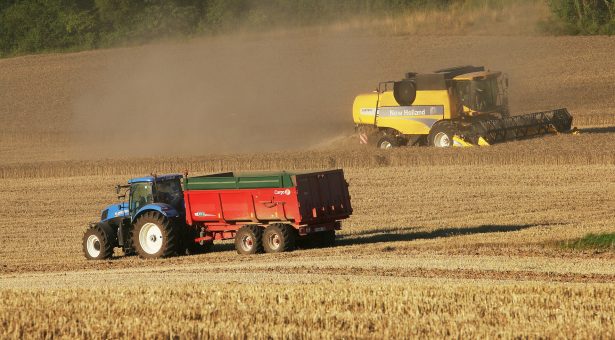UK Crop Microbiome Cryobank

The UK Crop Microbiome Cryobank (UK-CMCB) project, funded by UKRI BBSRC, brought together experts from CABI, the John Innes Centre, Rothamsted Research, Scotland’s Rural College and the James Hutton Institute to produce the first publicly available resource of its kind.
This unique, exploitable, and integrated CryoBank has been developed using state of the art cryo-research techniques to preserve important crop microbiome samples from different crops, cultured in different UK soil types. Living microbial material and genomic and metagenomic sequences (DNA) from the crop root environment have also been included in the resource, providing researchers with a source of data and samples for their work.
A microbiome is all the microbes present in any one ecosystem. In this case it is those associated with the roots of crop plants or in unplanted bulk soil. The microbes could include fungi, bacteria, archaea (which are single-celled microorganisms with structure similar to bacteria) and viruses. Samples were taken for six major food crops; barley, oats, faba bean, oilseed rape, sugar beet and wheat. The project developed a robust storage method, using UK cryotechnology, that uses liquid nitrogen to keep valuable microbiome samples secure at very cold temperatures, meaning they will be secure of generations to come.
All resources collected in the project were characterised using advanced DNA sequencing techniques, which meant it was possible to determine which microbes were present in the microbiome and helped in understanding their function within the microbiome, as well as their potential to enhance crop growth.
Future Impact:
This is the first publicly available resource of its kind and will safeguard future research and enable sustainable yield improvement. The microbial consortia generated through this work package are being added to the CryoBank and will soon be available to the public. The UK-CMCB has also created a curated database of sample information associated with DNA sequence data, metadata, and provision for analytical tools for end-users.
A beneficial microbiome should result in sustainably produced healthy plants that are less dependent on agrochemical inputs and yield better-quality food. By characterising the microbes present in the root microbiome of these crops, scientists were able to improve our understanding of their function and potential to enhance crop growth. The resource should help to enable future research toward optimising plant yields and sustainable alternatives to agrochemicals.
Main image: A UK wheat crop – one of the six to have its microbiome held and curated as part of the UK Crop Microbiome Cryobank (Credit: Pixabay)
